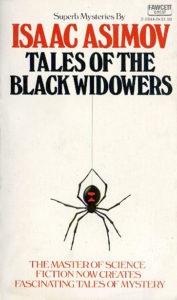 Isaac Asimov is probably known to most pulp fans for his science fiction work, in particular his Robot and Foundation series. Many may not be aware of his scientific work, including a long-running series of science articles (nearly 400) that were collected in a series of books (not sure if all were, I have many of the books).
Isaac Asimov is probably known to most pulp fans for his science fiction work, in particular his Robot and Foundation series. Many may not be aware of his scientific work, including a long-running series of science articles (nearly 400) that were collected in a series of books (not sure if all were, I have many of the books).
Less known may be his mysteries. One of his most interesting mystery series is the Black Widowers. These are short stories set in a fictional men’s supper club, with each tale one of the members brings a guest. During the post dinner drinks, the guest is grilled, and it’s always found he has some issue or problem that must be solved (though not always a crime). The members try to figure out the problem. And it’s usually the club’s waiter, Henry, viewed as an almost unofficial member, who provides a solution to the problem. And its usually a simple and clear one.
The club was based on a real literary supper club that Asimov was a member of, and the members of the Black Widowers were based on members of that club.
- Geoffrey Avalon, a patent lawyer (based on L. Sprague de Camp, science and science fiction author)
- Emmanuel Rubin, a mystery novelist (based on Lester del Rey, science fiction author, and editor, whom Del Rey Books is name for)
- James Drake, a chemist (based on Dr. John D. Clark, rocket scientist and sf author)
- Thomas Trumbull, an expert in cryptography for the United States government (based on Gilbert Cant, journalist and author)
- Mario Gonzalo, an artist, who usually draws a portrait of the evening’s guest (based on Lin Carter, fantasy and sf author and editor)
- Roger Halsted, a high school mathematics teacher, fond of jokes and limericks (based on Don Bensen, editor and sf author)
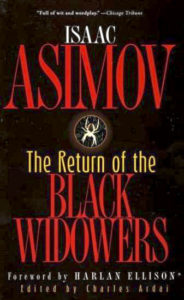 A total of 66 stores were written, originally in Ellery Queen’s Mystery Magazine. Five paperbacks reprinted 60 of them, and then the final six were reprinted (with several repeats) in a final collection several years later:
A total of 66 stores were written, originally in Ellery Queen’s Mystery Magazine. Five paperbacks reprinted 60 of them, and then the final six were reprinted (with several repeats) in a final collection several years later:
- Tales of the Black Widowers (1974)
- More Tales of the Black Widowers (1976)
- Casebook of the Black Widowers (1980)
- Banquets of the Black Widowers (1984)
- Puzzles of the Black Widowers (1990)
- The Return of the Black Widowers (2003)
I got these books back when I was a heavy science fiction fan. I pretty much didn’t read anything outside of sf or the occasional fantasy. I really enjoyed these stories. Other than Sherlock Holmes stories and maybe the 3 Investigators, these were probably the first mystery stories I specifically sought out to read.
It’s sad that no one has kept these works in print. You’ll have to hunt down the original paperback editions. But I think they are worth it. At least get the last volume, as it has a good selection of tales from all the collections.

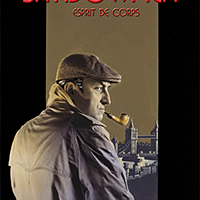
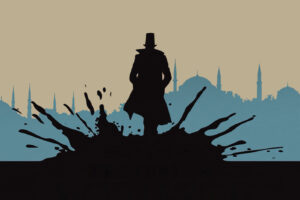
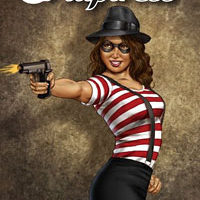
I’ve read many of Asimov’s Black Widowers tales, which revolved around such subjects as Gilbert and Sullivan operettas, the Exxon logo and a little-known way to strike a match on a matchbook.